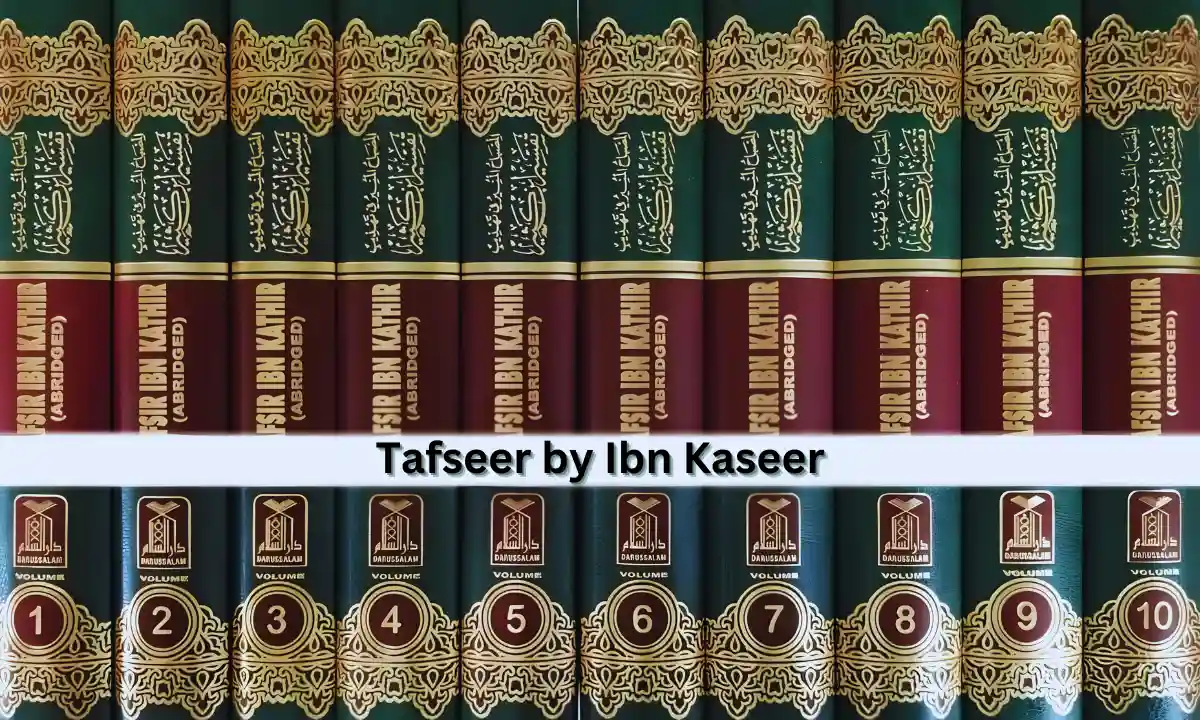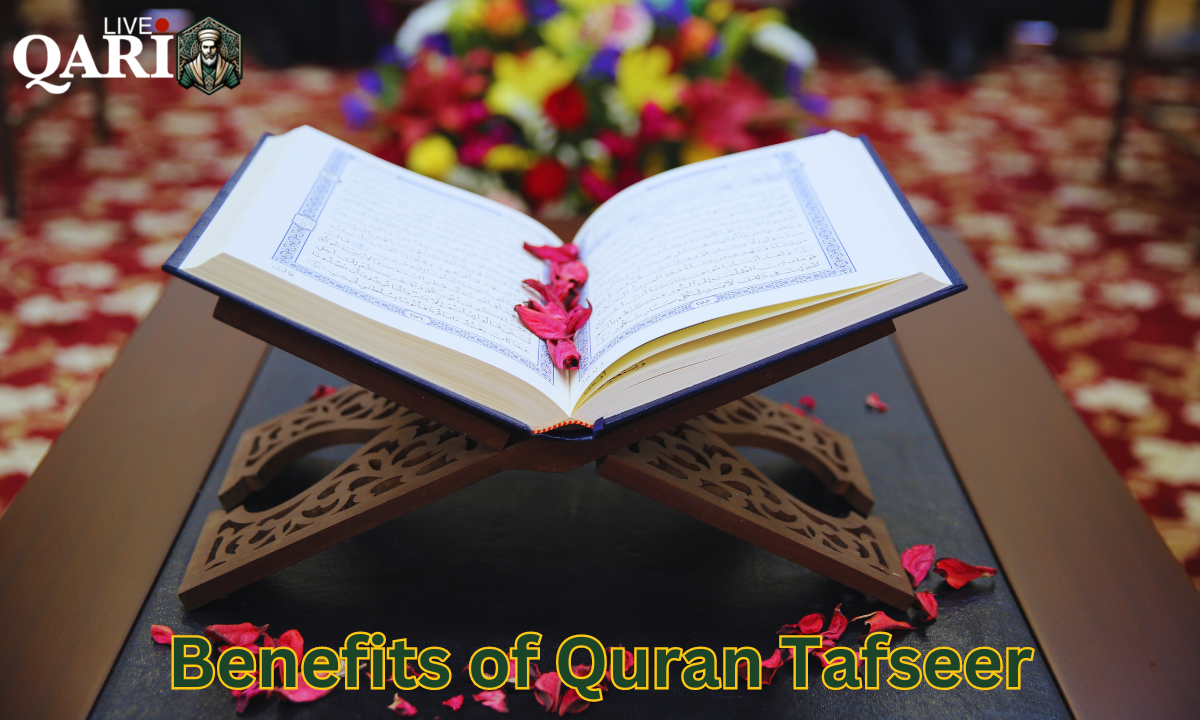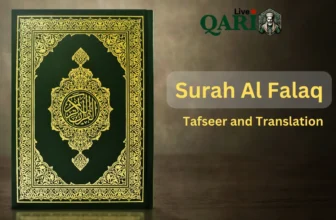
The Tafseer by Ibn Kathir is esteemed as a towering and highly respected interpretation of the Quranic text. Authored by the esteemed Imam Ismail ibn Kathir, this seminal compilation is an essential resource within Islamic scholarly works, offering profound insights for individuals eager to expand their grasp of the holy verses.
What is Tafsir Ibn Kathir?
It is a seminal work of exegesis within Sunni Islam, offering scholarly interpretations of the Quran. It is widely respected and referred to by Muslims worldwide due to its thorough nature and reliance on authentic hadiths (sayings and actions of Prophet Muhammad, PBUH) and the Quran itself.
Importance of Tafsir in Grasping Quranic Concepts
The Quran, while a guide for life, contains complex concepts and historical contexts that are not immediately evident to contemporary readers. Tafsir Ibn Kathir provides the historical background, linguistic explanation, and scholarly interpretation needed to comprehend these concepts fully.

Exploring the Depths of Tafsir Ibn Kathir
Delving into the Tafsir Ibn Kathir offers a gateway to the rich explanation of the Quran by a revered Islamic scholar. This translation makes the intricate layers of Islamic theology and law accessible to a global audience, enriching their understanding of the scripture.
This stands as a vital tool for those aspiring to understand the teachings of the Quran, viewed through the prism of traditional scholarly interpretation. The English rendition of this seminal work invites readers into the expansive world of Quranic interpretation and Islamic jurisprudence.
The Genesis and Enduring Influence of Imam Ibn Kathir’s Scholarship
Ibn Kathir distinguished himself as a master in jurisprudence, a chronicler of the past, and a scholar deeply versed in the Hadith. Hailing from Damascus in the 1300s, his contributions mirror an era of Islamic intellectual prosperity characterized by vigorous scholarly discourse and learning.
Salient Features of Ibn Katheer Tafseer
A hallmark of Ibn Kathir’s exegesis is the unique approach of using the Quran itself as the primary source to elucidate its verses. This technique is highly regarded for prioritizing the expositions attributed to the Prophet Muhammad (Peace Be Upon Him) and his close associates.
Methodology Adopted in Tafsir Ibn Kathir
Ibn Kathir’s methodology is grounded in conservative, Salafi, and traditionalist theology. He references the opinions of the Sahabah (companions of the Prophet) and Tabi’een (the generation following the companions) extensively.
Join the Best Online Tafseer Course at the Qari.Live and Start your Online Quran Classes Today.
Parameters Establishing the Validity of Ibn Kathir’s Exegesis
The credibility of Ibn Kathir’s Tafseer is anchored in its methodical structure, the agreement among scholars regarding its validity, and its comprehensive incorporation of verified hadiths.
The Structure of Tafsir Ibn Kathir
Tafsir Ibn Kathir is systematically divided into sections and verses, each delving into the reasons behind revelation (Asbab al-Nuzul), the related hadiths, and the scholarly interpretations.

Interpretative Expressions in Ibn Kathir’s Exegesis
The foundational exegesis was penned in Arabic, distinguished by its traditional yet approachable diction. Translations attempt to maintain this accessibility while conveying the rich linguistic nuances of the original text.
Exploring the Impact of Sectarian Perspectives
Although Tafseer Ibn Kathir originates within Sunni tradition, its academic rigor and focus on the Quran and Hadith render it a treasured asset for various Islamic denominations.
The Modern Significance of Ibn Kathir’s Exegesis
The enduring insights and meticulous research found in Tafseer Ibn Kathir transcend the passage of centuries, maintaining its pertinence in the contemporary era.
The Influence of Online Availability of Tafseer Ibn Kathir’s Interpretations
The advent of digital mediums has greatly enhanced the accessibility of Tafseer Ibn Kathir, paving the way for a wider spectrum of readers and introducing this fundamental text to a fresh wave of students.
Comparing Classical and Contemporary Exegeses
While contemporary Tafseer offers contextual insights relevant to current issues, classical works like Tafseer Ibn Kathir provide foundational knowledge essential for a deeper understanding of the Quran.
Applying the Lessons from Tafsir Ibn Kathir
The real test of any tafseer’s value is in its application. Tafsir Ibn Kathir guides us in implementing Quranic teachings in daily life.
Navigating the Best Tafseer for Personal Study
For those embarking on a journey of Quranic study, Tafseer Ibn Kathir offers depth and clarity that can serve as a solid foundation for further exploration.
Conclusion
Ibn Kathir’s exegesis continues to serve as a guiding light for individuals eager to delve deep into the teachings of the Quran, offering a route to comprehend its messages as the first followers of Islam did.
Enroll Now for the Best Online Quran Courses and Start your Online Quran Classes today.
Frequently Asked Questions(FAQ’S)
What is Tafsir Ibn Kathir?
Tafsir Ibn Kathir is an authoritative and widely acclaimed exegesis of the Quran written by the Islamic scholar Imam Kathir.
Who wrote Tafsir Ibn Kathir?
The revered Tafsir Ibn Kathir originates from the intellectual pursuits of the distinguished Imam Ismail ibn Umar ibn Kathir. Esteemed for his historical and theological acumen, his contributions were significantly recognized in the academic realms during the Mamluk era, within what is now known as Syrian land.
Who is Ibn Kathir?
Ibn Kathir, an eminent figure in the scholarly circles of the Middle Ages within the Islamic world, rose to eminence through his definitive works on interpreting the Quran, recording history, and examining the sayings and practices of the Prophet. The Tafsir Ibn Kathir stands as Ibn Kathir’s crowning scholarly achievement, earning accolades as a towering work of intellect in the realm of Islamic studies.
What distinguishes ibn katheer tafseer from other exegeses?
Tafseer Ibn Kathir is distinguished by its comprehensive use of authentic hadiths and early scholarly opinions, providing a thorough classical interpretation of the Quran.







